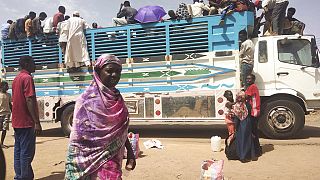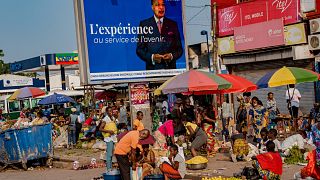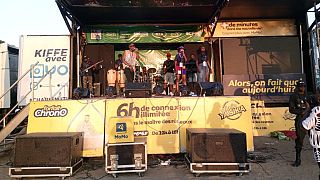The Morning Call
When people travel, it’s for different reasons: for work, for family, for adventure or maybe to look for love. As Saint Augustine of Hippo rightly put it, “the world is a book and those who do not travel read only one page.”
For several people like myself, we have read quite a number of pages.
But what lessons do you take after your voyage/safari? Or what do you bring back?
Roselyne Aissi-Gomes, a Congolese fashion designer brought back to her country ideas to fuse in her latest fashion collection, ‘Karibu’, which means welcome.
“Kenya was really an inspiration. While visiting Nairobi, all over the city, it’s written Karibu, Karibu. It is true that Kenya is such a welcoming country. So, when I came back with the fabrics I bought from there, it was only natural to use those fabrics in a collection we called Karibu,” she said.
For her, Kenyan fabrics are unique especially the colourful Maasai blankets and the kanga widely referred to as leso, which contain bold written messages that address a wide range of issues.
Friendship, love, mariages etc.
For example, this particular leso or kanga that Roselyne got from Kenya says: “Moyo wangu upo huru uyasemayo hayanidhuru” which means, “whatever you say does not affect me.”
“For example Linnete, in Congo we have prints with messages, except that they’re for the women’s day on March 08, for labour day for example or when someone gets married he puts pictures of himself or pictures of the couple and a message on the fabric. But it’s not common to get a message like these, so it’s a message that says a lot. As we say in our country, you can say whatever you want to say but I don’t care.It’s rare and we don’t have these kind of strong messages. Depending on my mood, if today I do not want you to talk to me, I can wear my fabric and everything you say will have no place in my heart. And this I found quite interesting,” she said.
Roselyne is also the co-owner of the EMOTIONS by US fashion brand which is about five years old.
The designs mainly highlight the true African identity, long eroded with influences from the west.
For her co-partner, the “Karibu” collection resonates with their vision:
“Karibu is the emotional way of welcoming our customers and all those who are interested in the brand. We are both Congolese ( Roseline and I) we grew up abroad. Once we got back home we thought we could bring what we had abroad by mixing with what we already have here. So because of trips like the one Roseline had recently in Kenya, we said to ourselves after “mobémbo” which was an invitation to travel through the brand, we thought of karibu. Welcome to Congo where we want everyone to find themselves.”
Roselyne’s next trip?
“The next trip I had in mind was to South Africa, but with the current situation, political problems, I don’t even know if they are political, problems with foreigners and with immigration, I must admit that it scares me a bit.”
What if the problem is solved?
“In that case I will go to Soweto to get some fabrics from the Zulu”, said the fashion designer.
I am indeed a proud Kenyan but also a challenged one!
I will now be rocking my kikoys, lessos and Maasai shukas like never before.
African designers are already at the top of their game.
But one way of standing out from the rest, could just be a vehicle, a boat or an airplane away!





![Africanews celebrates fifth anniversary [Night Shift]](https://static.euronews.com/articles/stories/05/57/72/74/320x180_cmsv2_6b1e7837-a917-526b-b3b4-4582a3f8bcac-5577274.jpg)
![Africanews celebrates fifth anniversary [Morning Call]](https://static.euronews.com/articles/stories/05/57/72/70/320x180_cmsv2_a6c857d4-80a3-510a-88e6-f060ea8d9ee9-5577270.jpg)






01:13
South Africa: Cape Town best city in the world
01:29
Haiti sees first domestic flight in seven months take off from Port-au-Prince
01:27
After voting Republican, some Arab-Americans are disappointed with Trump
Go to video
USA: What to remember from Trump's "travel ban"
01:30
African Union expresses concern over US president's new travel ban
Go to video
Kenya eases travel rules for most African nations